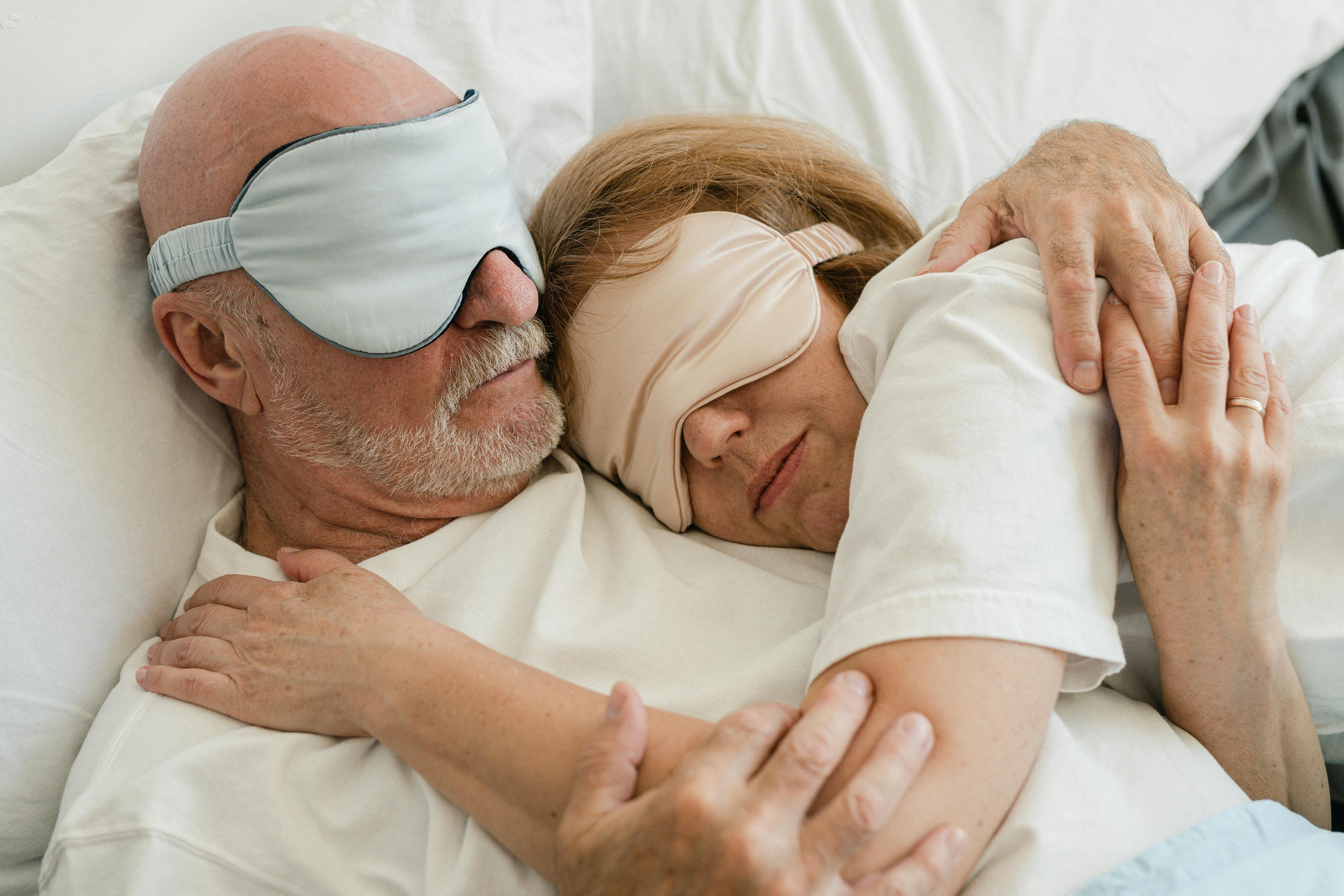The importance of sleep can’t be overestimated, right? Let’s remind ourselves how it affects our body. Actually, it helps the body repair after a long day and boosts brain function. What’s more, sleep improves mood. No wonder we are irritable and less productive when we don’t get enough rest.
Getting good quality sleep is very important for the elderly, which can impact their health and wellbeing.

How Aging Affects Sleep
We can see the change in the sleep patterns as we age. We don’t get the same amount of sleep at 60 as we used to get in youthful years, though at senior years we are not interested in partying all night long. The thing is the changes occur in the internal body clock, known as circadian rhythm.
This is actually rather normal for elderly people who may fall asleep earlier in the evening and wake up earlier in the morning. They have less time in deep sleep and more in lighter sleep stages. This causes the individuals to wake up frequently.
Illnesses and drugs also affect the quality and stability of sleep in a negative way. Some diseases, for example, arthritis, heart disease or diabetes may result in pain or other discomforts. These irritations which lead to sleep interruption.
Insomnia as You Age
Sleep disturbances, especially insomnia, are prevalent amongst the elderly. They include sleep problems like difficulty falling asleep, staying asleep, or waking up too early. About 40-70 percent of the older population had a complaint of insomnia. Several factors contribute to insomnia:
Medical Conditions. Conditions such as sleep ailments including sleep apnea are much common in the older population.
Medications: Many seniors take medications like diuretics and antidepressants that can disrupt sleep patterns.
Psychological Factors. Due to stress, anxiety, or depression, a person can develop an inability to sleep. These events create stress in our lives like retirement, death, or any significant change can lead to increased stress.
Lifestyle Changes. Less physical activity disrupts sleep patterns among the individuals thus leading to difficulty in attaining good sleep.
Acute insomnia can cause tiredness, mood swings, and poor focus. Chronic insomnia leads to fatigue, mood swings, and difficulty concentrating. Both types can worsen other health issues and lower the quality of life.
5 Ways to Improve Your Sleep Hygiene
- Keep a Consistent Sleep Schedule: Sleep and rise in a regular pattern: Both the body and mind should get into the habit of retiring at certain hours and arising at fixed times. This means that if you are eating meals at regular intervals, then your digestion will be in harmony and your body clock will be in check.
- Create a Sleep-Friendly Environment: Make your bedroom quiet, dark, and cool. Use earplugs, an eye mask, or a white noise machine. A comfortable mattress and pillows are also important.
- Limit Naps: Reduce the amount of time spent on naps to avoid using up too much energy and growing drowsy, go for about 20 – 30 minutes. Try to make a note not to nap during the later hours of the day as this interferes with the ability to sleep through the night.
- Watch Your Diet and Caffeine Intake: Do not compromise your dinner, alcohol, and caffeine products during your evening preparation to sleep. These can cause you to be restless at night.
- Establish a Relaxing Bedtime Routine: Do calming activities before bed, like reading or taking a warm bath. Avoid screens and stimulating activities an hour before bedtime.
Though there are some changes which come as a result of health conditions and aging then sleep can be however improved. Older adults need to get into a routine about when to go to bed and wake up, ensure that their sleeping environment is conducive for sleeping, avoid taking siesta, regulate on the kind of diet they take and avoid taking caffeine before retiring to bed. Hence, improving insomnia is necessary for boosted quality of living when getting older.